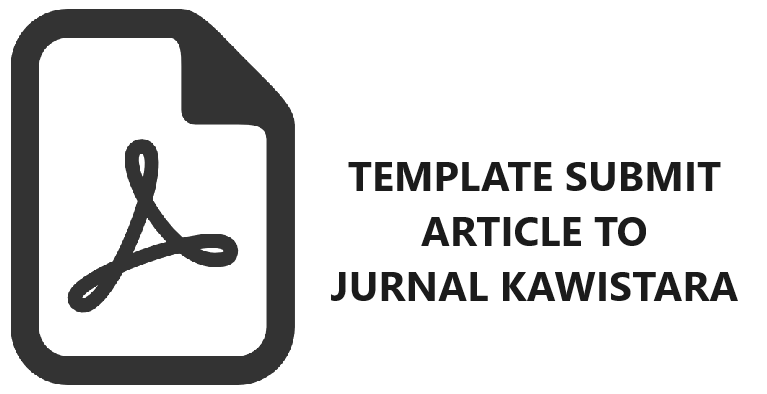SOCIAL CAPITAL DALAM KEWIRAUSAHAAN LOKAL, KAJIAN KETERLIBATAN MASYARAKAT DALAM PARIWISATA DI DELHA, KAB. ROTE NDAO, NUSA TENGGARA TIMUR
Fitri Ciptosari(1), Titi Susilowati Prabawa(2*), Antonius Bele(3)
(1) Fakultas Interdisiplin, Universitas Kristen Satya Wacana (UKSW)
(2) Fakultas Interdisiplin, Universitas Kristen Satya Wacana (UKSW)
(3) Fakultas Interdisiplin, Universitas Kristen Satya Wacana (UKSW)
(*) Corresponding Author
Abstract
Entrepreneur is believed as the backbone of the economy. Very few studies in NTT, and none in Rote, have explored this area in the context of tourism. Based on ethnographic research, this study focuses on local tourism entrepreneurship in the context of socio-cultural complexities of Delha’s community, Rote. This qualitative research aimed to discusses how local entrepreneurs respond to every opportunity and challenge, due to cultural remoteness of host communities to tourism-related business. Data were collected with observations and in depth interview with life history approach. The findings show that social capital has been utilized by the local entrepreneur in responding to every opportunity and challenge. Bonding social capital has a large role at start up, while bridging social capital provides wider outside networks to maintain and develop bigger business. In this study, linking social capital has found very limited. Even though linking social capital plays an important role in supporting capital supports, business licenses, and other facilities that help a lot in business development. Given the literature, this is not a mainstream result, kinship and solidarity as a form of social capital does not always support the entrepreneurial process, particularly in the context of communal society. As a recommendation, the culture of collectivity that developed strongly in Delha community can be utilized as social capital in developing socio-enterprise.
Keywords
Full Text:
PDFReferences
Adler, P. S. dan Kwon, S.W. 2002. Social Capital: Prospects for A New Concept. Academy of Management Review 27(1): 17-40.
Ashley, C. & Roe, D. 1998. Enhancing Community Involvement in Wildlife Tourism: Issues and Challenges. London: IIED.
Ashley, C., Roe, D. & Goodwin, H. 2001. Pro-Poor Tourism Strategies: Making Tourism Work For The Poor. A Review of Experience. London: ODI.
Bourdieu, P. 1985. The Form of Capital. Dalam Handbook of Theory and Research for The Sociology of Education. Editor J. G. Richardson, Wesport: Greenwood.
Butler, R. W. 1980. The Concept of A Tourist Area Cycle of Evolution: Implications For Management of Resources. Canadian Geographer 24(1).
Butler, R.W. 1999. Sustainable Tourism: A State-of-the-art Review. Tourism Geographies 1(1): 7-25.
Carnegie, M. 2008. Development Prospects in Eastern Indonesia: Learning From Oelua’s Diverse Economy. Asia Pasific Viewpoint 49(3): 354-369.
Cole, S. 2007. Entrepreneurship and Empowerment: Considering the Barriers – A Case Study from Indonesia. Tourism 55(4): 461-473.
Corbin, J. & Strauss, A. 2008. Basics of Qualitative Research: Techniquesand Procedures for Developing Grounded Theory. Edisi Ketiga. Thousand Oaks, CA: Sage.
Erb, M. 2015. Sailing to Komodo: Contradictions of Tourism and Development in Eastern Indonesia. ASEAS – Austrian Journal of South-East Asian Studies 8(2): 143-164.
Fallon, F. 2001. Conflict, Power and Tourism on Lombok. Current Issues in Tourism 4(6): 481-502.
Fox, J. 1977. Harvest of The Palm: Ecological Change in Eastern Indonesia. London: Harvard University Press.
Gittell, R. J. & Vidal, A. 1998. Community Organizing: Building Social Capital as a Development Strategy. California: Sage Publications.
Gorodnichenko, Y. & Roland, G. 2012. Understanding The Individualism-Collectivism Clearage and Its Effects: Lessons From Cultural Psychology. Dalam Institutions and Comparative Economic Development. Editor M. Aoki, T. Kuran dan G. Roland. London: Palgrave Macmillan.
Henuk, Y. L. & Haning, L. 2015. Rote Mengajar Punya Cerita. Kupang: Lembaga Penelitian Undana.
Jeong, S. 2013. The Role of Social Capital for Amish Entrepreneurs in Pursuing Informal Economic Opportunities. Journal of Amish and Plain Anabaptist Studies 1(1).
Krueger, N. F. 2007. What Lies Beneath? The Experiental Essence of Entrepreneurial Thinking. Entrepreneurship Theory and Practice 31(1) 123-138.
Levitte, Y. 2004. Bonding Social Capital in Entrepreneurial Developing Communities – Survival Networks or Barriers? Journal of the Community Development Society 35(1): 44-64.
Portes, A. & Landolt, P. 2000. Social Capital: Promise and Pitfalls of Its Role In Development. Journal of Latin American Studies 32: 529-547.
Ropo R. 2017. NTT Hanya Memiliki 0,7 Persen Pengusaha. Diakses pada tanggal 8 November 2017. <http://kupang.tribunnews.com/2017/11/08/ntt-hanya-memiliki-07-persen-pengusaha>
Scheyvens, R. 2007. Exploring The Tourism – Poverty Nexus. Current Issues in Tourism 10(2-3): 231-254.
Schwarz, S. 2017. The Role of Human Capital, Social Capital, and Psychological Capital in Micro Entrepreneurship in China. Disertasi, Nottingham: University of Nottingham.
Sinuraya, S. I., M. Darwin, Y. T. Keban & Sukamdi. 2018. Diperlukan Pendekatan Kebijakan Adaptif untuk Penguatan Modal UMKM di Kabupaten Sleman. Kawistara 8(2): 111-212.
Smilor, R. W. 1997. Entrepreneurship: Reflections on A Subversive Activity. Journal of Business Venturing 12(5): 341-346.
Therik,W. M. A. 2015. Relasi Negara dan Masyarakat di Rote. Salatiga: Satya Wacana University Press.
Tosun, C. 2000. Limits to Community Participation in The Tourism Development Process in Developing Countries. Tourism Management 21: 613-633.
Turner, S. 2007. Small-Scale Enterprise Livelihoods and Social Capital in Eastern Indonesia: Ethnic Embbeddedness and Exclusion. The Profesional Geographers 59(4): 407-420.
Woodley, A. 1993. Tourism and Sustainable Development: The Community Perspective. Dalam Tourism and Sustainable Development: Monitoring, Planning, Managing. Editor Nelson, J. G., Butler, R. dan Wall, G. Waterloo: University of Waterloo.
Woolcock, M. 2000. Social Capital in Theory and Practice: Where do we Stand?. Dalam Social Capital and Economic Development: Well-Being in Developing Countries. Editor J. Isham, T. Kelly dan S. Ramaswamy. UK: Edward Elgar.
Woolcock, M. 2001. The Place of Social Capital in Understanding Social and Economic Outcomes. Isuma 2: 11-17.
Wright, C. & Lewis, B. 2012. On The Edge of Crisis: Contending Perspective on Development Tourism, and Community Participation on Rote Island, Indonesia. ASEAS – Austrian Journal of South East Asian Studies 5(1): 102-127.
Article Metrics
Refbacks
- There are currently no refbacks.
Copyright (c) 2019 Fitri Ciptosari, dkk.

This work is licensed under a Creative Commons Attribution-ShareAlike 4.0 International License.
Jurnal Kawistara is published by the Graduate School, Universitas Gadjah Mada.











